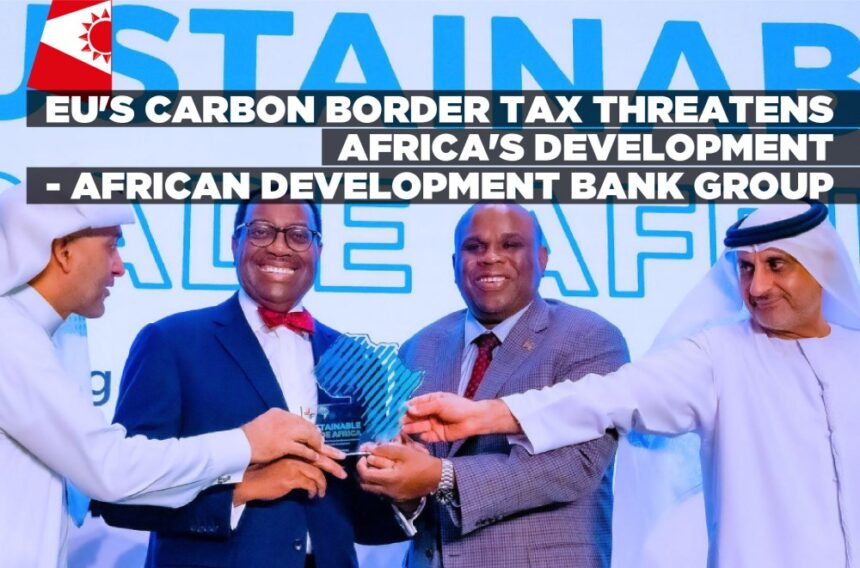Staff Reporter
DR. Akinwumi Adesina, the President of the African Development Bank Group, has cautioned that the implementation of a new European Union (EU) Carbon Border Tax could severely impede Africa’s trade and industrialization efforts by penalizing value-added exports such as steel, cement, iron, aluminium, and fertilizers.
He expressed concern about the implications for Africa, citing the continent’s energy deficit and heavy reliance on fossil fuels, particularly diesel. He warned that this EU Carbon Border Tax could compel Africa to revert to exporting raw commodities to Europe, further exacerbating Africa’s de-industrialization.
Addressing delegates at COP28’s Sustainable Trade Africa Conference, Adesina warned of potential annual losses of up to $25 billion due to the EU Carbon Border Tax Adjustment Mechanism.
“Because of weak integration into global value chains, Africa’s best trade opportunity lies in intra-regional exchanges, with the new Africa Continental Free Trade Area estimated to increase intra-Africa exports over 80% by 2035,” Adesina explained.
Highlighting Africa’s marginalization in global energy transitions, Adesina referenced data from the International Renewable Energy Agency, revealing that Africa had received only $60 billion (2% of the $3 trillion) in global investments in renewable energy over the past two decades. He stressed that this trend would adversely affect Africa’s competitiveness in exporting to Europe.
Adesina advocated for Just Trade-for-Energy Transition (JTET) policies, aiming to support Africa’s renewable energy ambitions while preserving its trade prospects. He proposed the use of natural gas as a transitional fuel to mitigate renewable energy variability and stabilize the continent’s energy systems in alignment with its industrialization goals.
Adesina referenced a report by Moody’s Analytics indicating that Africa had the lowest default rate on infrastructure investment compared to other regions worldwide, standing at 5.5%. This rate contrasted with Latin America’s 12.9%, Asia’s 8.8%, Eastern Europe’s 8.6%, North America’s 7.6%, and Western Europe’s 5.9%.
Additionally, Adesina highlighted several substantial projects that had attracted investor interest through the Africa Investment Forum, an initiative developed by the African Development Bank and seven other founding partners. Notable projects included Mozambique’s $24 billion liquefied gas project, the $15.2 billion Abidjan to Lagos Highway corridor spanning five countries, and the $3.6 billion Tanzania to Burundi and DR Congo railway line.
Adesina concluded by painting a vision of a different Africa, asserting that with partnership, there is no project beyond their collective capabilities.
Walid Mohammed Hareb Alfalahi, the Chief Executive Officer (CEO) of the United Arab Emirates (UAE) Trade Centre, countered prevailing perceptions about Africa being a risky place for investment. He emphasized the continent’s potential for investment and business opportunities, differing from popular misconceptions.
“What you hear about Africa is not the reality. I see the potential in Africa. I see the possibilities to do more,” said Alfalahi.



Leave a Reply